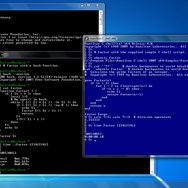Cygwin vs MinGW
Compare features, pricing, and capabilities to find which solution is best for your needs.

Cygwin
Cygwin is a powerful environment that provides a Unix-like shell and command-line tools on Microsoft Windows, enabling seamless execution of many Linux applications and scripts without a separate virtual machine or dual boot. by Corinna Vinschen, Christopher Faylor

MinGW
MinGW is a minimalist software development environment for Windows, leveraging the GNU toolchain, primarily GCC. It provides a set of freely available and freely distributable Windows specific header files and import libraries combined with GNU tools that allow users to create native Windows applications. by MinGW.org
Comparison Summary
Cygwin and MinGW are both powerful solutions in their space. Cygwin offers cygwin is a powerful environment that provides a unix-like shell and command-line tools on microsoft windows, enabling seamless execution of many linux applications and scripts without a separate virtual machine or dual boot., while MinGW provides mingw is a minimalist software development environment for windows, leveraging the gnu toolchain, primarily gcc. it provides a set of freely available and freely distributable windows specific header files and import libraries combined with gnu tools that allow users to create native windows applications.. Compare their features and pricing to find the best match for your needs.
Pros & Cons Comparison

Cygwin
Analysis & Comparison
Advantages
Limitations

MinGW
Analysis & Comparison
Advantages
Limitations
Compare with Others
Explore more comparisons and alternatives










